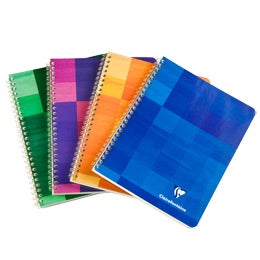Let me start here by saying, the following is what I did and may not be appropriate for you. Hopefully it is helpful to a least one newbie author.
Suggestion: Go to the bookstore.
Not the library, not your bookshelf, not your list of favorite authors. The bookstore. An agent or publisher wants to see what your book compares to that is current. If your book is comparable that sold well in 1987, that just isn't useful information today. Go to the bookstore and find section that has your genre. I went to the children's section because my novel is for middle grade readers.
Then I read. And read. And read.
I picked up book after book after book and scanned the first pages. I didn't look at any books that were classics from my childhood, I was after CURRENT, like the last 5 years. It took a long time, I won't lie. Here's what I looked for:
- Plot that was similar to mine. Of course. My story is about a child spy who befriends a princess and does spy stuff. Adventure/friendship. I looked for any books that had female spies and jotted them down in my notebook. Then I looked for stories with a mystery in them and jotted notes about them in my notebook. Then I looked for adventure stories that focused on an interpersonal relationship and wrote down notes about them.
- POV. Books written in similar point of view as my novel. This may seem irrelevant, but when I was a kid, I remember that I absolutely hated reading books in first person present tense and I avoided them at all costs. POV is enough to attract or detract your audience. My current book is actually written in first person present tense, isn't that irony for you?
- Voice. Not all middle grade books have similar voices. I looked for books with voices that were like mine. My main character is smart and sassy and my writing isn't as simple as some MG novels so I looked for similar stories and wrote these down.
- Length. The reader of Magic Tree House novels is not going to be your Harry Potter reader, simply because Harry Potter is so much longer. I have an 8 year old that will only read books that have more than 200 pages. Any less that that isn't worth her time. My 6 year old will only read books under 110 pages. Anything more than that she feels takes too much commitment.
- Style. I am more of a dialogue and narrative girl than description so I looked for books that had these similar styles. Some books have more of a contemporary style, some are more traditional. Find books that are like your style.
- Character. Not to be confused with voice, this is more about the actual characteristics of your main character. Sure your main character may talk the same as the Princess Diaries heroine, Mia, but if your MC is also ugly, mean, and a math-lover, she will likely have a different reader base. No offense to math-lovers, but princesses have a totally different draw. Just sayin.
With all the info I gathered, I found the three to five books that had the most similarities to my book and I included them in my proposal.
Of course, I didn't just say, "here's five books like mine", because if there's that many books like yours, why do we need yours? No, the key is to explain why these books are like yours and then say why yours is different/better.
For example: If you wrote a book about a wizard in the first person that is 25,000 words you could say - Harry Potter is like mine because it's about a boy wizard at school fighting evil, but my book is told in the first person which is often times more personal to readers. Also my book is shorter and therefore geared to a slightly younger audience.
You want the agent/publisher to see that people buy books like yours, but there isn't already something exactly like yours in the market place.
Do you know who you're like? Can you name 3 to 5 novels right now as comparables and include reasons why? Do you look for something different when you are writing your competitive proposal? Tell us!






 to build yourself, market your material, spread your message, no matter what it is or who you are, life happens. Life happens and sometimes you don't feel like being out there and exposed. You want to curl up in a ball or go to bed for, like, ever
to build yourself, market your material, spread your message, no matter what it is or who you are, life happens. Life happens and sometimes you don't feel like being out there and exposed. You want to curl up in a ball or go to bed for, like, ever


